China football boom offers golden goal for UK firms
- Published
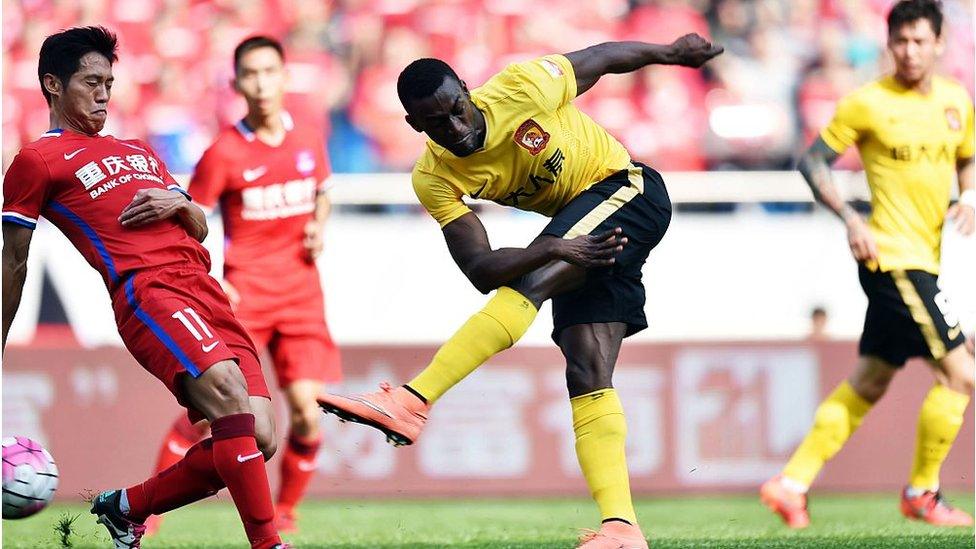
Colombian star Jackson Martinez in action in the Chinese Super League
Football in China is enjoying a boom as investors not only snap up overseas clubs but also lure big name players and coaches to the nation's Super League.
Its government wants to see China become a footballing superpower, and that means that as well as big stars, the nation is also hungry to acquire knowledge and expertise from overseas.
That provides numerous potential business opportunities, from the grass roots to top tiers of Chinese football, for British firms and clubs to get a foot in the commercial door.
A team of 11 Chinese sports firms is currently in the UK until 2 October, on a visit organised by the UK government's Department for International Trade (DIT).
They have been attending the Soccerex football business convention in Manchester to make contacts and learn more about the game in the UK. All have different reasons for visiting this country.
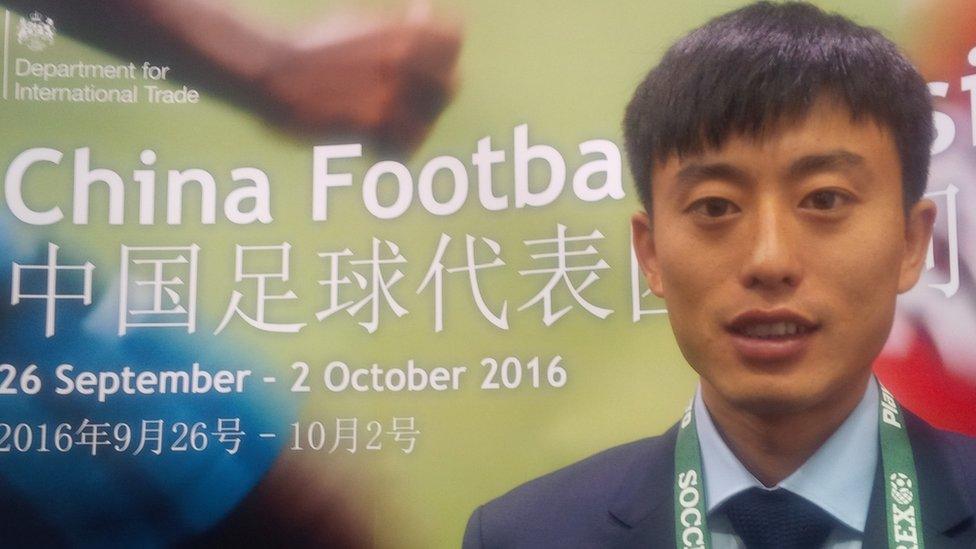
Sports Leader's Weidong Yuan says he wants to learn how to make his football centre more commercial
Newcastle United stint
"I want to learn about the best way of doing things from English clubs," says Weidong Yuan, a keen football player from the age of five.
He is general manager of Sports Leader, a firm which operates the biggest football centre in Beijing.
It provides numerous services to different levels of football teams, coaches and players, and also opportunities for Chinese football players to go abroad for high level training and study.
Mr Yuan already has some experience of British football, as he is a former youth coach at Championship club Newcastle United, and also studied and played in the UK.
"I am interested in how English clubs commercialise the assets at their clubs, to learn ways about running our football centre in Beijing more effectively commercially.
"I am also interested in learning about player rehabilitation, as I see an opportunity to introduce a rehabilitation facility into our centre," he says.
Increased football interest
On this trip, with the other Chinese delegates, he will visit the Football Association's national training centre of excellence St George's Park, and attend the Tottenham Hotspur v Manchester City game on Sunday.
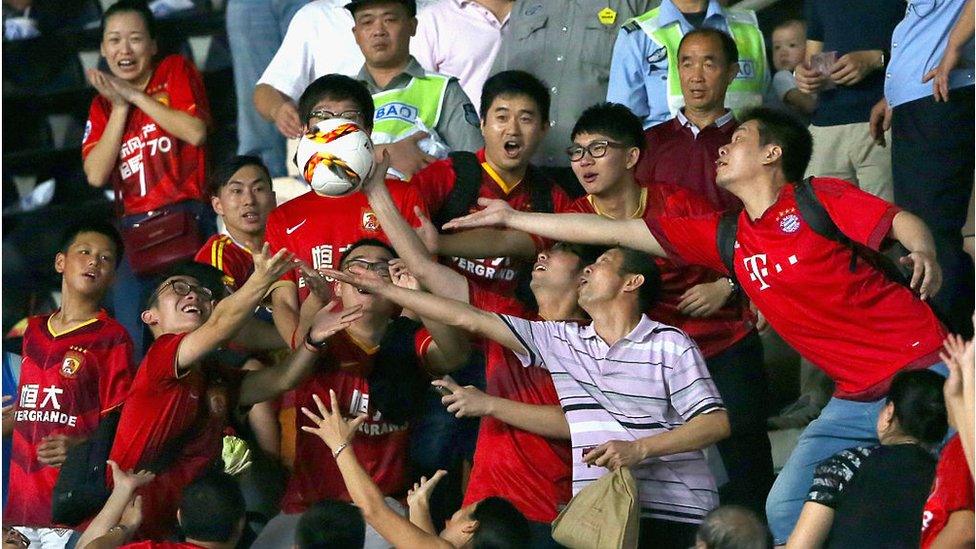
Supporters in China can learn more about European fan culture
Mr Yuan says there has been a huge surge in interest in football in the past two years, after Chinese President Xi Jinping's declaration about making China the world's biggest sports economy by 2025.
"Previously football was only really followed by people like me who had played the game," Mr Yuan says.
"But since 2014 when the government said we need to pay attention to football, at grass roots as well as professional level, then things have changed.
"Now we are developing the 'hardware' of the industry, building up the clubs, players, finance.
"But we also need to pay attention to the 'software'… for example there needs to be awareness of football culture and educating the fans, for example that you do not change your support to just back the winning teams.
"If Newcastle United was in China, then after being relegated the fans would have left them."
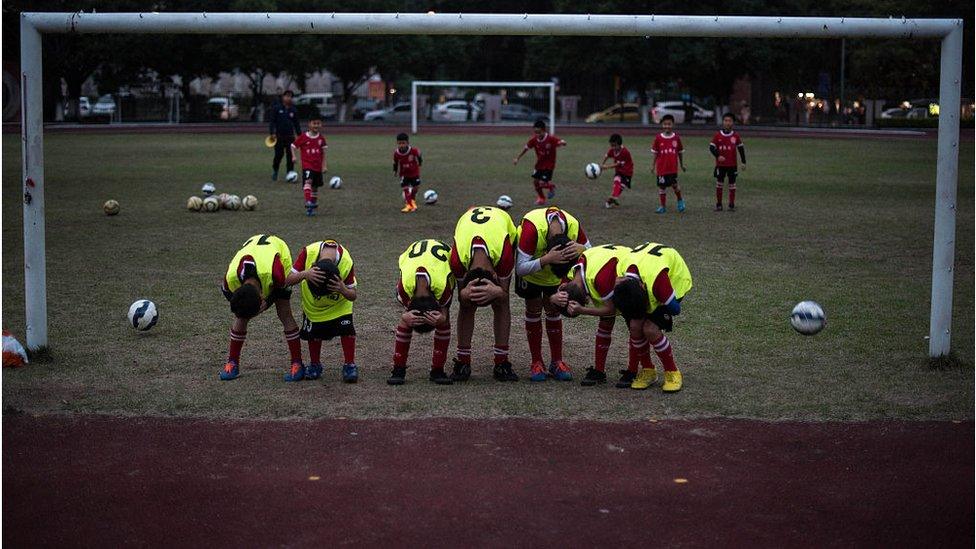
Children playing football in China, which wants to use the sport for social education reasons
Economic changes
Charles Li is director of the Chinese FA's marketing department.
He says the growth of football in China can be put down to the moves to wean the country's economy away from exports and towards an internal consumer market.
"Many people now have enough income for things like overseas travel, and entertainment spending, and an important part of that is on sport.
"I am now talking to people in Europe about how we can market our football better.
"But it is not just our marketing people who can learn from overseas, our coaches and teams also need to gain experience internationally," he says.
'More growth'
David Ran is director of strategy and business development at Super Sports Media Group, which is the exclusive English Premier League broadcast rights holder in China.
He says the firm has brought England's top flight football league to more than 1.2bn Chinese viewers through its far reaching sports distribution network in China.
Despite the surge in interest in the sport, he says there is still a lot of growth to come in the Chinese football market.
"We want to learn more about football commercial opportunities off the playing pitch. We are still partly in the development stage," he says.
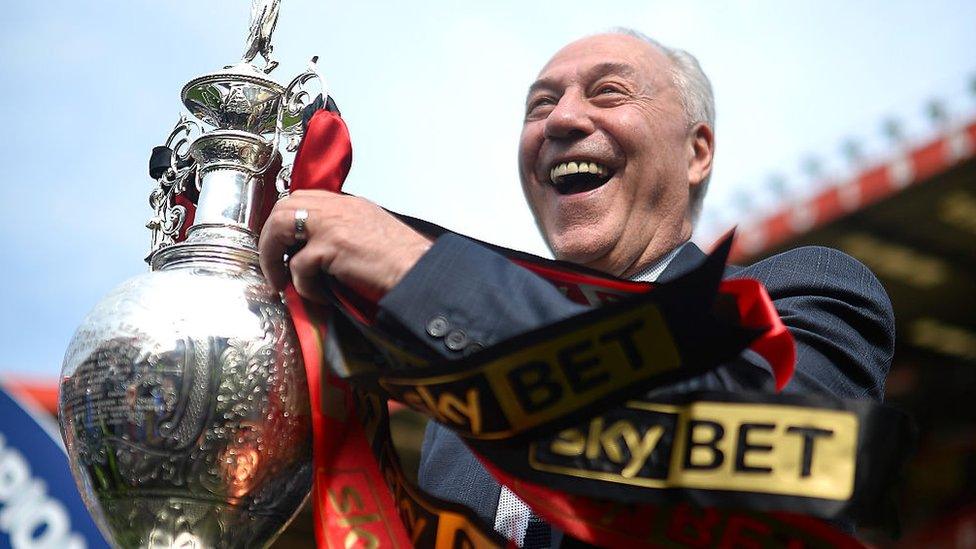
Jeff Mostyn, Bournemouth chairman, who took them into the Premier League
Social message
And what is the view from the British side?
Jeff Mostyn is chairman of Premier League club Bournemouth, and has already established football contacts with the country.
"We are exploring opportunities in China, with Chinese companies and Chinese Super League clubs, looking at potential collaborations, in particular on youth development and exchange of coaching expertise," he says.
He says that earlier this year, the club, in collaboration with Bournemouth University, hosted sixty Chinese coaches.
"They provided education, and we provided the ability for the coaches to get their FA Level One badges, which they did."
He says the Chinese are interested in using football to spread messages among people about not indulging in anti-social behaviour, and in adopting healthy diets and keeping fit.
Mr Mostyn will be visiting China in early October to get a better idea and understanding of the industry there.
"At the moment I am not convinced the infrastructure compares with Europe, and a lot of the money currently being spent is being put into the big name player acquisitions," he says.
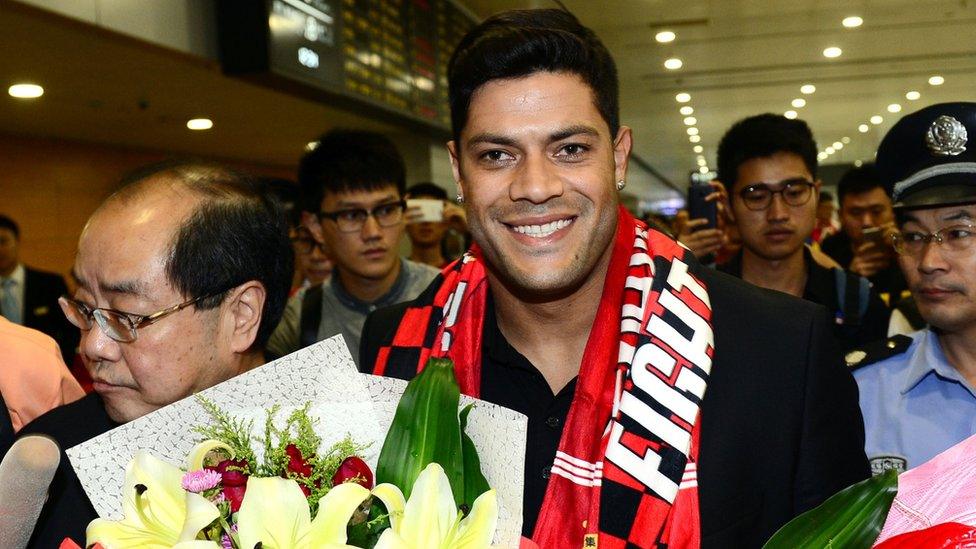
Brazilian star Hulk is the latest in a line of big name acquisitions
'Joining the dots'
Player signings by Chinese clubs that have grabbed the headlines have included big international names such as Ramires, Gervinho, Fredy Guarin, Jackson Martinez, Hulk and Alex Teixeira.
"At a very superficial level, anyone in the UK football industry looking at China would equate it with money, finance, revenues," says Trevor Watkins, Global Head of Sport, at UK law firm Pinsent Mason, which has two offices in mainland China and one in Hong Kong.
"That is what underpins business, and China represents one of the last untapped global markets for sport generally, and football particularly.
"At this point we have a confluence, because we also have a very clearly stated aim from within China that it is also going to use football to make an even greater name for itself on the global stage.
"What we are seeing now is people in the UK football industry and in China trying to join the dots, and bring the two sides together."